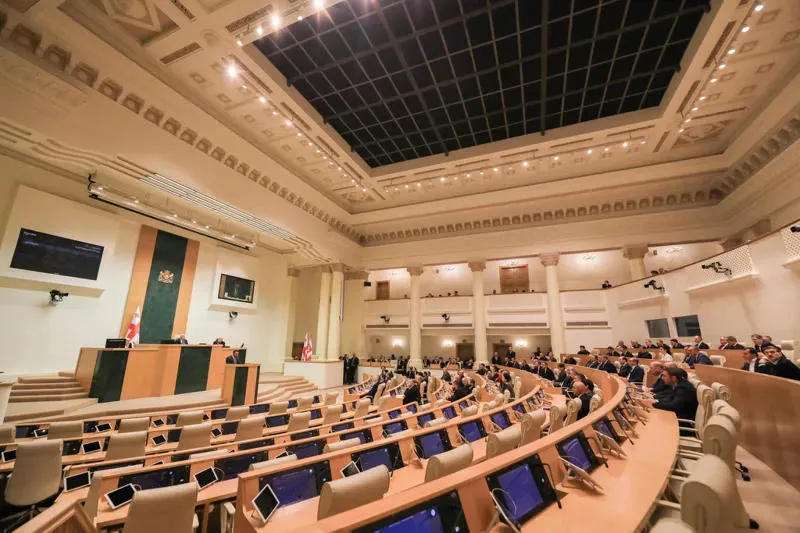**Parliament Passes Landmark Amendment to Freedom of Speech Law**
In a significant move, the Georgian Parliament has adopted amendments to the Law on Freedom of Speech and Expression in its third reading. The draft law was supported by 83 deputies, with no opposition, and was considered expeditedly by the ruling party, Georgian Dream.
**A New Era for Freedom of Speech?**
The amended law brings significant changes to the regulation of freedom of speech and expression. One of the key provisions repeals the current legal norm that places the burden of proof in cases of restriction of freedom of speech on the initiator of the restriction. Instead, any suspicion that cannot be proven will now be resolved against the restriction of freedom of speech.
**Shifting the Burden of Proof**
The draft law also shifts the burden of proof in defamation disputes from the plaintiff to the defendant. This means that individuals who have suffered possible moral and reputational damage will no longer need to prove the falsity of the facts disseminated by the defendant. Instead, the defendant will now be required to prove that their statement did not contain a materially false fact.
**Tightening Defamation Laws**
The amended law also tightens the terms of consideration for defamation cases. The 1-month period established by the court for parties to settle a defamation dispute has been reduced to just 10 days. Additionally, if the court finds that a publication of correction or denial is not sufficient to compensate the plaintiff for damage caused by defamation, the respondent may also be ordered to pay compensation.
**A Shift in the Balance?**
The adoption of these amendments marks a significant shift in the balance between freedom of speech and protection from defamation. By placing the burden of proof on the defendant and tightening defamation laws, the Georgian government appears to be taking a more nuanced approach to regulating online discourse.
As the amended law comes into force, Georgians can expect a new era for freedom of expression. While the changes may seem contentious, they also reflect a desire to protect individuals from harm caused by defamatory statements while still allowing for robust debate and discussion.
**What’s Next?**
With these amendments now on the books, the Georgian government will be closely watched as it implements the new regulations. How these changes impact online discourse and individual freedoms remains to be seen. One thing is certain: this shift marks a significant moment in Georgia’s journey towards protecting its citizens’ rights while fostering a vibrant public sphere.
Read More @ www.interpressnews.ge












